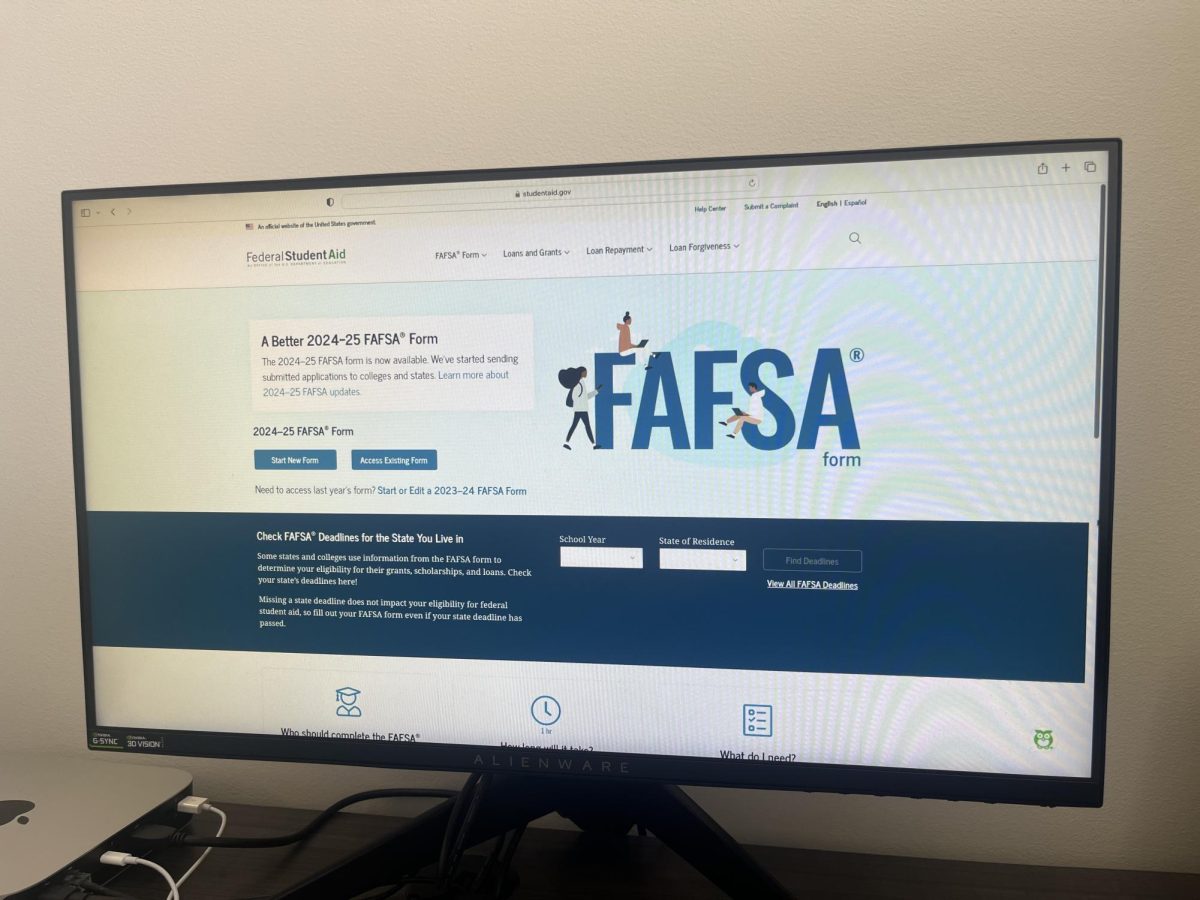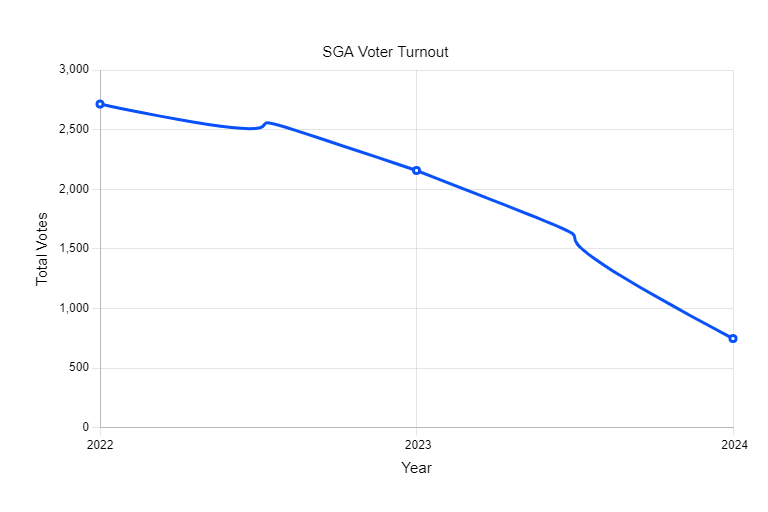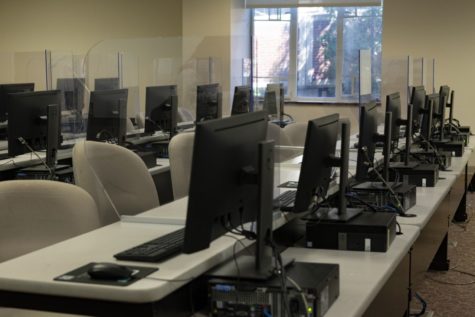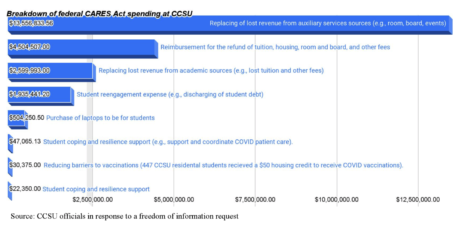Should Proctorio Be Used By Colleges?
May 3, 2021
Some students at Central Connecticut State University say that online proctoring is a burden and an added stress that heightens their anxiety.
Online proctoring is a popular way for professors to monitor their students while taking tests while the students are home due to the coronavirus pandemic. The technology watches for signals that the student may be cheating and alerts the professor.
Olivia Rozio, an undergraduate at Central from Newington, said online proctoring software like Proctorio makes her feel uneasy as it records her.
“Two of my classes this semester use Proctorio,” Rozio said. “I’d say it has more negative effects on students. I already get anxiety over regular tests.”
Rozio said she wondered if she would have gotten a better grade if she wasn’t so focused on Proctorio.
“I feel like there would have been an improvement if Proctorio wasn’t being used because I just feel so anxious,” Rozio said.
Helaine Alessio, a professor and chair of Kinesiology, Nutrition and Health Department at Miami University, said she conducted a study on how Proctorio affects students’ grades. She found that students performed about 17 points lower on proctored exams, which resulted in a two-letter grade difference.
On an informal Instagram poll, of 31 Connecticut students, unrelated to Alessio’s research, 74% reported feeling uncomfortable while taking proctored online exams.
Alessio said over the years, she felt the need to start using Proctorio for a medical terminology class she taught online. Alessio said she noticed everyone in the class got comparatively better grades when it was taught online.
“We found that the distribution of grades for the sections taught online was very narrow. In other words. Everyone was getting A’s,” Alessio said. “Whereas when it was taught face-to-face, it was a more of a balanced distribution of grades.”
She said this prompted her to examine students’ performance on online proctored tests and ones that weren’t.
“Every time the proctoring software was used, the grades were significantly lower,” Alessio said.
Alessio said that despite the results of her study, she always uses proctoring software on her online courses.
“Without monitoring, if the instructions are to not use an outside resource, then how would you know they didn’t?” Alessio said.
Alessio said she understands why students feel anxiety but doesn’t see it different from being monitored in person.
“It’s probably very stressful to know you’re being watched,” she said. “But I can imagine it’s also stressful being watched while your professor walks around the room in a face-to-face test environment.”
Rozio said she felt anxious about Proctorio watching her but she also said she couldn’t even take her first exam until she made a stop at Best Buy.
“My computer didn’t come with a compatible microphone,” Rozio said. “So I had to go get a microphone that worked with Proctorio, and that was expensive.”
Sarah Brown, an undergraduate at Central from Southington, said her statistics class uses Proctorio on all tests, and she worries often about the software.
“I get a lot of anxiety using Proctorio for quizzes and exams mostly because my professor says that there are some issues that can happen,” Brown said.
Brown said that Proctorio is a hassle and often has bugs.
“During the last quiz I took, I experienced a lot of problems with the software,” Brown said. “I shouldn’t have to worry about something going wrong when I should be focused on my quiz.”
Brown said her statistics professor was understanding but couldn’t help fix Proctorio. It was up to her to contact customer service and advocate to get the problem fixed.
“I had answered ten questions on my quiz and then after that, Proctorio wouldn’t let me save my answers,” Brown said. “At one point, it went to a black screen and kicked me out.”
Julianna Vass, the president of Central’s Psychology Honor Society, Psi Chi, said online proctoring is unfair because there are already enough distractions for students who are remotely learning.
“We’re still adjusting to taking tests and exams online,” she said. “We aren’t used to it, so our level of anxiety increases.”
Vass also said online proctoring is an invasion of the students’ privacy, which also adds to the test-taking anxiety.
Jessica Hatrick, an undergraduate at Central from Woodbridge, said she never used any form of online proctoring prior to the pandemic forcing classes to switch to virtual.
“At first I was unsure, but as I was taking my test, I was only focused on that,” she said.
Hatrick said she adjusted to online proctoring quickly.
“The way I like to look at it is I wouldn’t be uncomfortable [in an] in-person class with the professor watching me, so why should I be now?” she said.
Belmin Sadzak, an undergraduate at Central from Southington, said he was indifferent towards Proctorio when he took exams for his psychology class last semester.
“I don’t like it, but I don’t mind it either,” Sadzak said. “If I know the topic or subject, I am confident in myself to do well on the test.”
Sadzak said he didn’t think Proctorio had any negative effects on his grades.
Daniel Woldeab, an associate professor in the Individualized and Interdisciplinary Studies Department at Metropolitan State University in Minnesota, has also been interested in researching the effect of online proctoring students during exams.
Woldeab has taught online classes for some time and recognizes students’ anxiety heightening when they take proctored virtual exams over in-person exams.
“What makes online proctoring different [from in-person exams] is the medium,” he said.
Woldeab said there are many different questions professors and students should ask themselves.
“Can we assume every student is comfortable with being monitored?” he said. “Can we assume a student who exhibits some anxiety to have higher anxiety when they’re taking exams on a different medium than usual?”
Woldeab said that all online proctoring is not the same. Some exams are monitored through software and others have a live proctor.
During Woldeab’s study, a big problem arose, he said. A female student of Muslim faith was being proctored by a human and was told to take off her hijab during the initial scan in of her environment.
After refusing multiple times, the student had to report the incident and work with the university to get it resolved.
Woldeab said that online proctoring is a problem that needs to be solved, but he is not sure who is responsible for fixing this issue.
“Whose responsibility is this? If this is an issue, then whose problem is it?” he said. “Who should be concerned about this? What should we do about it? Is it the responsibility of academia?”













